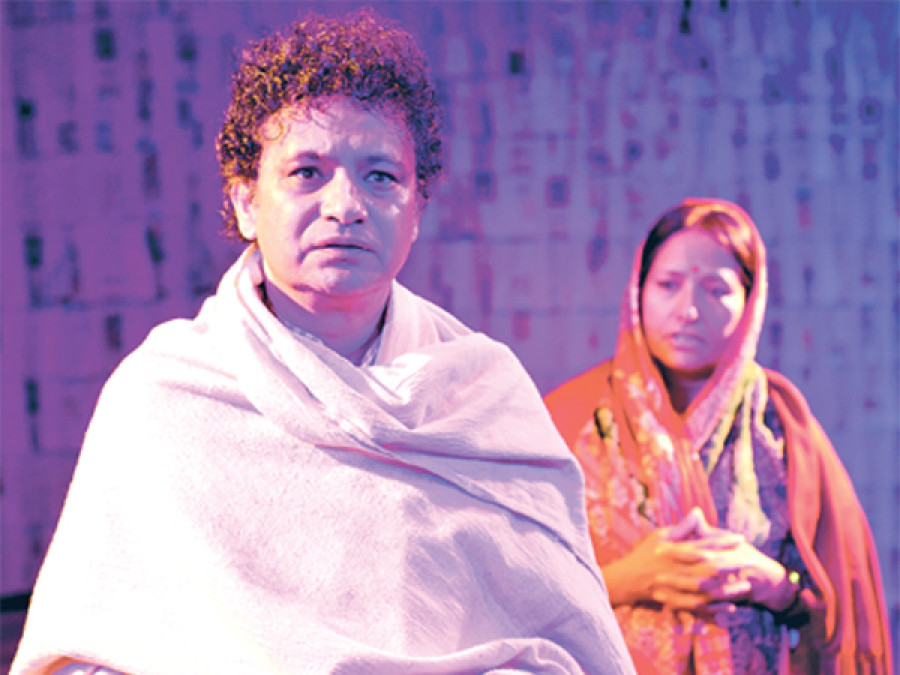Entertainment
Allegory of the maize
There is an anecdote that often makes rounds among Western literary critics regarding the famous post-modernist concept of The Death of the Author
Timothy Aryal
There is an anecdote that often makes rounds among Western literary critics regarding the famous post-modernist concept of The Death of the Author (which derives its name from the 1967 essay by French critic Roland Barthes): Isaac Asimov once sat anonymously in a lecture hall where the topic of discussion was one of his own works. Afterward, Asimov went up to the lecturer and introduced himself and said, “I found your interpretation of the text interesting, although it was not what I meant at all.” “Just because you wrote it, what makes you think you have the slightest idea what it’s about?” the teacher said in response. Once a text gets published, the author is dead. Any opinion that the author has about his own text counts as the opinion of a reader. Hence, the reader is born. A different Cultivation of Maize, Theatre Village’s latest production (written by Sanjeev Uprety and directed by Bimal Subedi), tries to examine this very notion in a Nepali context.
The play is based on Makai ko Kheti, a 19th century book, written by Krishna Lal Adhikari—for which the author was arrested by the then Rana establishment, who interpreted the book as treasonous.
The play opens with the author (played by Sanjeev Uprety) getting arrested for writing the titular book—Makai ko Arkai Kheti (A Different Cultivation of Maize). As is with the source of the play’s inspiration, the book is a simple agricultural manual which deals with maize production and how to save the crop from being affected by pests—names simply as white insects and red insects. But the author is charged with the accusation that his work is against the
rule of the state and that his use of metaphors—that of white and red insects—is against the state. The play, hereby, raises myriad questions on authorial freedom and the art of interpretation. Can an author be held responsible for the interpretations of the things he has
written? And can an author be held on his artistic creation? Is an author allowed to revise his own published text? (We are told that our author had previously titled the book Makai ko Kheti, and later changed it to Makai ko Arkai Kheti.)
And in doing so, the play weaves through an engaging subplot that involves the present day Nepal.
As the country is reeling under a political crisis and an unofficial blockade, the fissures and cracks, in and among the Nepali multitudes, have started to become prominent. The play illustrates that chasm between diverse point of views by employing myriad characters from the society, who have a tendency to advocate—and even distort facts—so as to suit their interests and logic.
The only difference between reality and fiction—that of the play—is: While the diverse Nepali populace is miffed by the constitution, the same populace, here in the play, have grievances for the book that the author has recently published. Weaving that real-life scenario into the interplay—however twisted—helps the play maintain an authentic voice throughout. The satire is spot on.
The characters, each with their own beliefs—a Madhesi, a marginalised, a transgender, a jyotishi, a Feminist—are present in the court of justice, pronouncing their interpretation of the book and accusing the author, who looks on, often stuttering in an attempt to defend himself. These characters offer painstakingly absurd interpretations of the book, which sends a surge of laughter through the audience. For instance, the jyotishi (played by Saroj Aryal), in summarising his interpretation, accuses the author as the cause of the earthquakes. “The earthquake is the cause of the earthquake this author produced in the world of his words,” asserts the jyotishi, clad in saffron robes and a dhoti. “The earthquake happened just three months ago. Instead of writing about the earthquake, this author writing about the maize shows his evil nature.”
However, director Bimal Subedi, who previously directed Sandaju ko Mahabharat, seems keen to avoid too much philosophical musings, and offers up a luscious, whimsical subplot that pervades the play, but, nonetheless, sums it up. That engaging subplot, a razor sharp satire on the current status of society and the incompetent state, creates some genuine humour.
The meticulous set—the walls made of newspapers that serve as an indication of the author’s works— offers up a beautiful platform for the talented actors the play has in tow. I especially liked Sujan Oli’s portrayal of a corrupt lawyer and Saroj Aryal’s jyotishi. The lighting and sound help create—and then define—the moods the play. The costumes are also very well thought out. They are so meticulously designed that it creates a surreal setting, making the audience let go of other minor shortcomings.
Different Cultivation of Maize has that rare mixture of philosophical insights and laugh-out-loud humour and satire, which makes the play a compelling watch and a genuine theatrical experience.
The play is currently being staged at the Satya Mohan Joshi Natakghar, Theatre Village, in Lazimpat, every day at 4:15 pm (except for Wednesdays), and will run through December 13




 13.12°C Kathmandu
13.12°C Kathmandu










